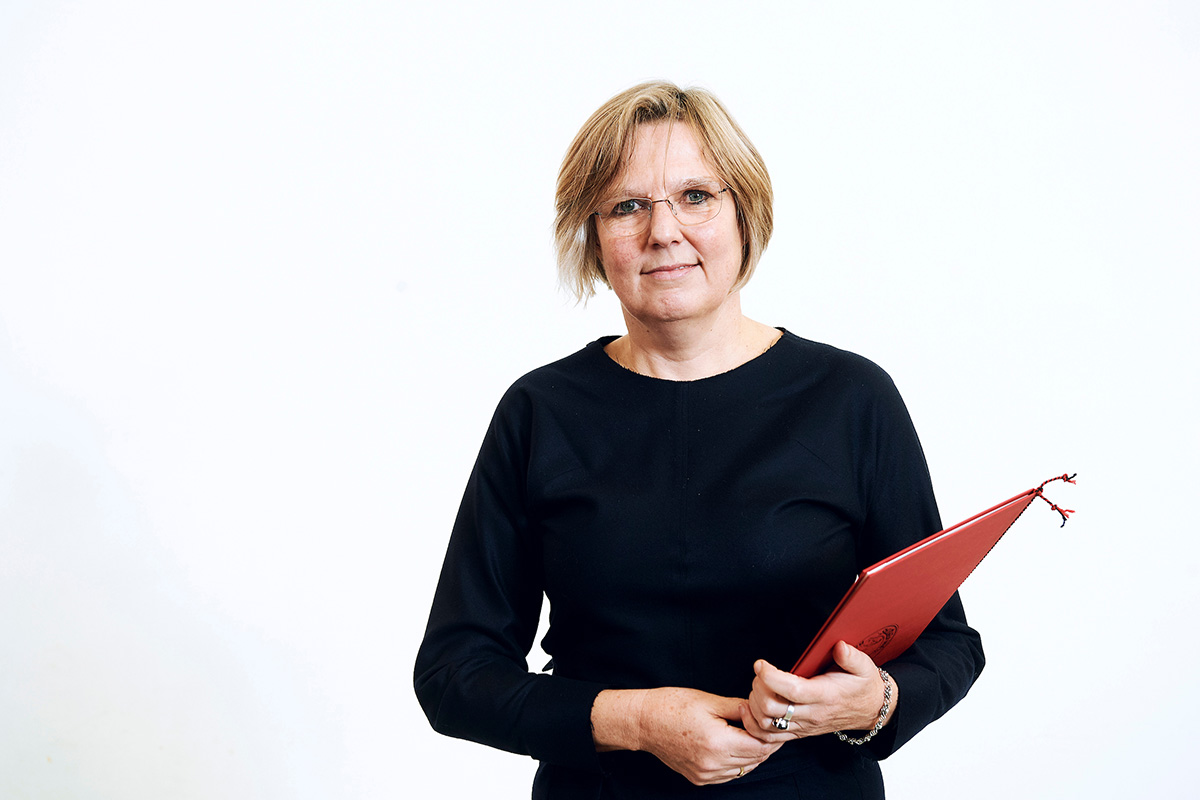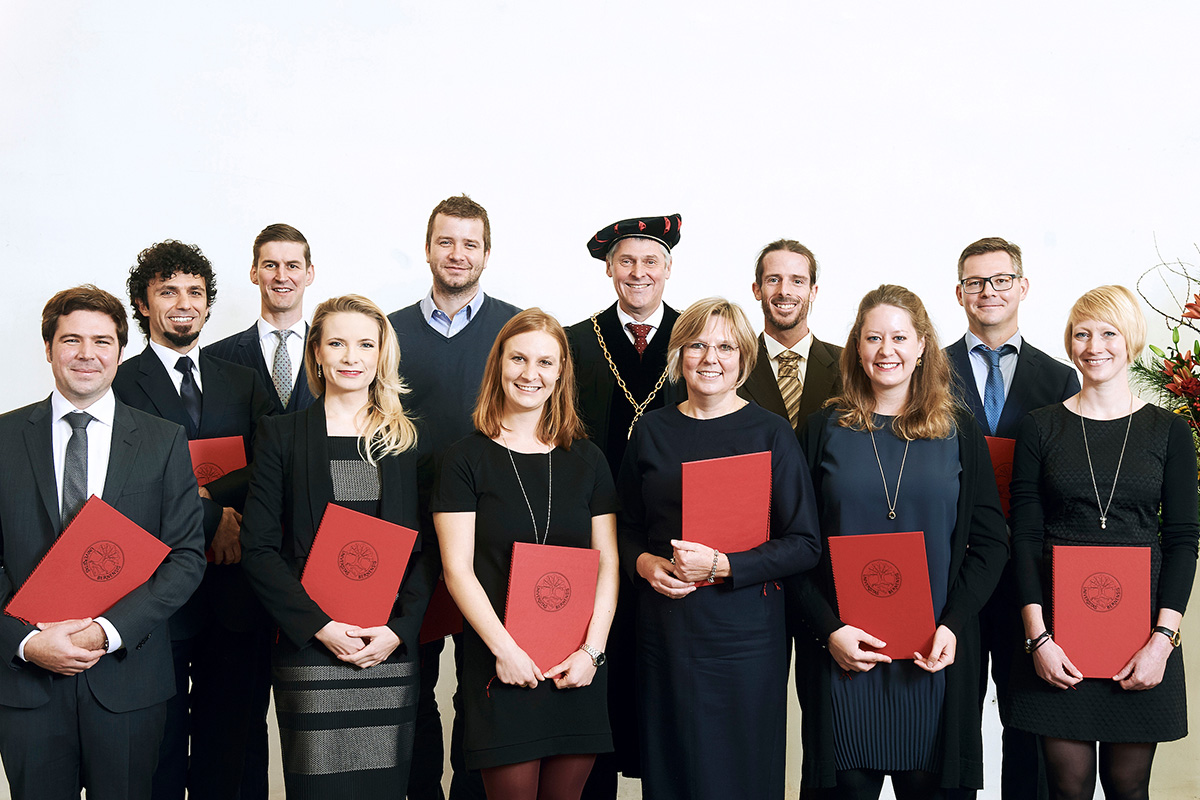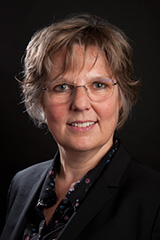"I thought the message was fake news at first"
In recognition of her highly innovative research on Oriental Christianity, Heleen Murre-van den Berg received the Hans Sigrist Prize from the University of Bern, on the occasion of the Dies academicus, which includes an award of 100,000 Swiss francs. The online magazine "uniaktuell" had the chance to be present when the Hans Sigrist Foundation conducted its traditional interview with the prize winner.
Before receiving the award, Heleen Murre-van den Berg was unaware of its existence. Smiling, the friendly Dutch professor told us: "I almost deleted the email. In the subject, it mentioned something about my having won a prize. I had to read it three times before I realized that it was real, that it was not fake news."
It is clear that we are sitting facing a curious person who is not afraid to ask questions. Heleen Murre-van den Berg first wants to know if the room where the interview is taking place is owned by the Hans Sigrist Foundation. She seems to want to understand where she is – you can sense the impassioned cultural scholar within her. When asked how she would label herself, she says without hesitation: "I’m a historian."
Globally-Recognized Specialist
In her research, Heleen Murre-van den Berg dedicates herself chiefly to Syriac Christianity in the Middle East from the 16th-20th century. Her university path began with her studies of Hebrew. She tells us of her Protestant background and her interest in the Bible. Her course of study demanded that she take up a second Semitic language. This, by chance, happened to be Aramaic, "the language of a group of Christians, of whom I had never heard before – the Syriac Christians." An additional factor which drew her to the area of research was the fact that not many scholars before her had grappled with Syriac Christianity.

In the meantime, Heleen Murre-van den Berg has become a globally-recognized specialist in the field of Christianity in the Middle East. In the laudation at the award ceremony at the Dies academicus, it was said that: "She makes use of and combines philological, literary, historical, theological, and cultural science-based methods in an outstanding way." Her methods of approach are as diverse as the topics which Murre-van den Berg publishes in connection with Christians in the Middle East. For example, she deals with Syriac Christianity, which has its roots in 2nd and 3rd century Syria and Mesopotamia, especially in areas where Aramaic was spoken, rather than Greek. Today, Syriac Christians live in Iraq, Iran, Syria, Egypt, Turkey, Lebanon, and in diaspora in Europe and the U.S.A. In her research, Murre-van den Berg particularly deals with language, writing practices, literature, identity and nationalism, as well as ritual and religious practices. She is also interested in the exchange between Christians in the Western World and Christians in the Middle East, as well as in the diaspora of Syriac Christians.
"Facts are always just one half of the story"
Murre-van den Berg does a lot of travelling in the region. She says: "I am interested in the relationship between historical research and the current situation. In my research, there is always reflection on what is currently happening." She thinks that having contact with the local people is indispensable; that a purely academic perspective is not enough. "Even as a student I had the opportunity to go to these communities with my doctoral supervisor, who had close contacts there," she says, adding: "You have to see the places and listen to how the people talk about their history. You have to understand how people position themselves within their own history." You also always have to be aware of what you yourself bring to the situation, and that there are always many different ways of seeing and interpreting the world: "Facts are always just one half of the story that gets told. It is also important to point out where these sources come from and how you have come to your conclusions."
She is concerned about the current situation in Syria. Naturally, religion has a big impact upon the borders along which society is organized. However, she is also convinced that it is often war which first creates and consolidates this structure. She describes how, before the war, communities in many areas lived intermixed. "I find it particularly tragic that, roughly 100 years after the genocide of Syriac Christians, these people are being cast out yet again." She explains that it was going really well for the Christians in the Middle East from the 1950’s, and that they were a valued part of many communities, but that they became increasingly marginalized nonetheless and were forced to the fringes of society until the culmination of the destruction and atrocities of IS. She is happy to be able to contribute to the preservation of cultural heritage with her research.
Distinction at exactly the right time

The Hans Sigrist prize has come at just the right time for her: two years ago, Heleen Murre-van den Berg left her post as Vice Dean in the Administration of Leiden University and became Director and Associate Professor at the Institute of Eastern Christian Studies at Radboud University in Nijmegen. She says that she is looking forward to tackling an extensive new research project, and the prize money will enable her to carry out important preliminary work before approaching sponsors such as the ERC.
ABOUT THE PERSON

Born 1964
1995 Ph.D. at Leiden University, NL
1996 Post-doctoral work at Harvard University, U.S.A.
2008 Professor for History of World Christianity at Leiden University, NL
2012-2015 Vice Dean for the Faculty of Social Sciences at Leiden University, NL
Since 2015, Director and Associate Professor at the Institute of Eastern Christian Studies at Radboud University, Nijmegen, NL
Since 2017, Director of the Netherlands School for Advanced Studies in Theology and Religion (NOSTER), Nijmegen, NL
Since 2017, member of the Koninklijke Nederlandse Akademie der Wetenschappen (KNAW) [Royal Netherlands Academy of Arts and Sciences]
THE HANS SIGRIST PRIZE
Each year, the Hans Sigrist Foundation Board decides the field of the prize from a selection of proposals, from which an internationally-compiled expert committee nominates candidates worldwide. This year’s prize committee was led by Prof. Katharina Heyden and Prof. Martin Sallmann from the Faculty for Philosophy and Theology. The Hans Sigrist Foundation Board makes the final decision regarding the award. Prize winners can use the prize money to fund further their research.
ABOUT THE AUTHOR
Brigit Bucher is the Deputy Manager of Corporate Communication at the University of Bern and is the Editor of "uniaktuell".